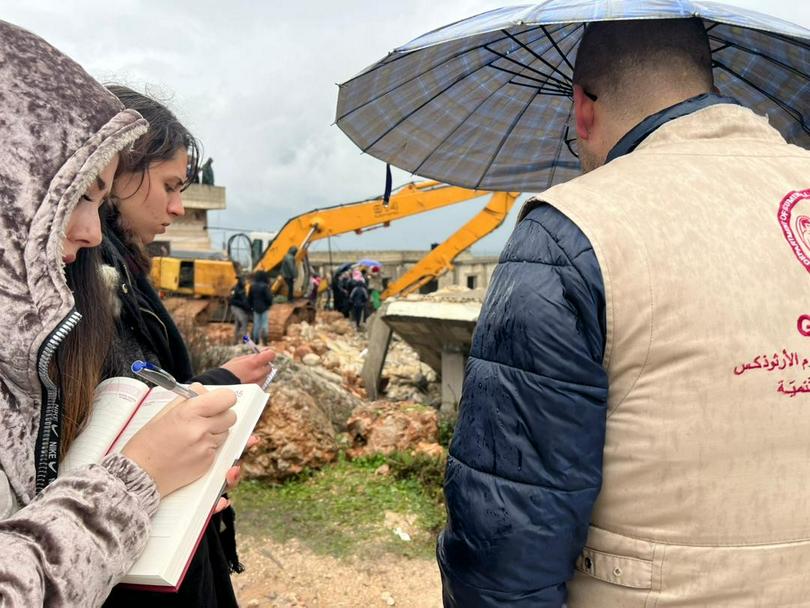Immediately after the 7.8 magnitude earthquake struck in the early hours of the morning on February 6, ACT members began to conduct rapid needs assessments in Syria and Turkey. They also began to provide life-saving aid, including food, medicine, warm blankets, mattresses, and pajamas, to families who lost everything to the devastating quake, even as search and rescue efforts continued to free survivors from the rubble.
“People are staying out of their homes,” reports Samer Laham of the Middle East Council of Churches. “They are afraid of aftershocks destroying the buildings that are still standing.”
Sara Savva of The Greek Orthodox Patriarchate of Antioch and All the East- Department of Ecumenical Relations and Development (GOPA-DERD) continues, “Lots of buildings have not yet collapsed, but they are not stable. Families are sleeping in the streets, in cars if they have them, with friends and family, or in shelters.”
As the number of people killed, injured, and displaced by the earthquake grows, so too does the support from ACT members. As of February 8, seven ACT members were involved in response efforts or were conducting needs assessments. These include:
MECC
MECC reports that 232 sites have been offered as shelters in Aleppo since the quake, including church halls, mosques, schools, and municipal halls. MECC is providing mattresses and blankets, as well as hot meals, to affected families, and is working to secure additional supplies to meet their needs.
They report that there is a lack of availability of some key items in Aleppo, so they are being transported from Damascus.
“The key need currently is food baskets,” reports Ghassan Chahine of MECC. “We need canned and pre-made food, as people cannot cook at the moment.”
GOPA-DERD
GOPA-DERD is performing assessments in Aleppo, Hama, and Latakia, and has been distributing a variety of items to families in need including winterization kits (blankets, pajamas, and mattresses), ready-to-eat meals and food kits to those in shelters and to those outside of them as well, kitchen kits to shelters to help them prepare meals for the families living there, battery chargers, hygiene and dignity kits, and medical supplies to hospitals and the shelters.
GOPA-DERD is sending engineering teams to examine buildings to make sure they are safe for people to return to. They are also preparing to provide emergency psychosocial support in the coming weeks.
GOPA-DERD is looking to scale up its response as soon as possible.
Christian Aid
Christian Aid is working in northwest Syria in non-government-controlled areas. One of their Syrian partners has started giving out winterization kits that were already set up in the rural areas of western Aleppo and Idleb. Another is giving out child protection and winterization kits, making spaces for children, and helping families get back together.
Swiss Church Aid (HEKS)
HEKS supports families living in schools and shelters with in-kind support. They are developing a medium- to long-term intervention that is likely to be focused on providing multi-purpose cash support to affected families. They are performing their assessment from Damascus, working with the Syrian government’s relevant ministries.
FCA
Fin Church Aid is giving hygiene and dignity kits to 2000 families living in shelters in Aleppo. These families need help getting ready for winter. They are undertaking assessments in Aleppo and Hama and will continue to develop their response.
Hungarian Interchurch Aid
Hungarian Interchurch Aid, with its local partner, the Middle East Council of Churches (MECC), is currently developing a response plan to provide emergency food and non-food items (NFIs) to the people affected by the earthquake in Aleppo. The HIA office in Erbil will be in charge of the implementation, with help from the HQ in Budapest. HIA has also opened its helpline to collect donations and, depending on the available funds, is planning a medium- to long-term intervention.
LWF and DKH
The Lutheran World Federation and Diakonie Katastrophenhilfe are both doing needs assessments with their local partners and developing their response plans, which will be available soon.
Originally from Webpage: "actalliance.org"
CCD reprinted with permission












